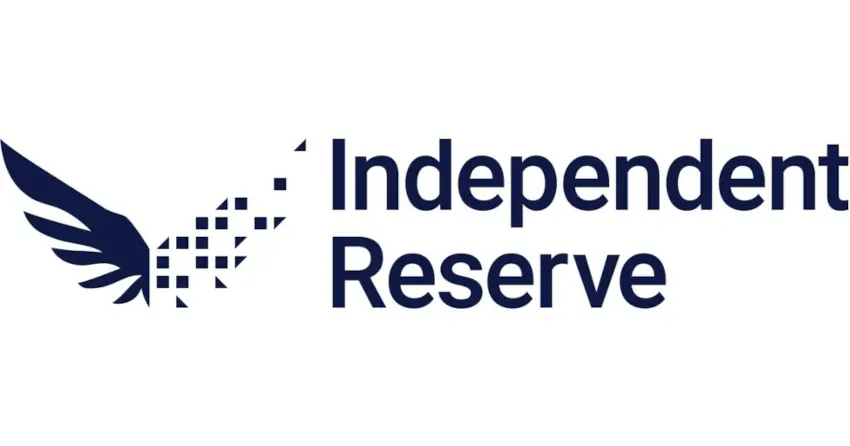Summary
Cryptocurrency is legal and regulated in New Zealand. The Financial Markets Authority (FMA) oversees crypto assets. Popular payment methods include bank transfers and credit cards. Most exchanges support NZD. Key regulations include the Financial Service Providers Register (FSPR) and Anti-Money Laundering and Countering Financing of Terrorism Act (AML/CFT). Our recommended best crypto exchanges in New Zealand are:
Best Crypto Exchanges in New Zealand
This article examines the top cryptocurrency exchanges available to New Zealand residents. We’ll focus on platforms that support New Zealand Dollars (NZD) and offer reliable payment methods such as bank transfers and credit cards. These factors are crucial for seamless transactions in the local market.
1. Bitget
2. Bybit
3. Independent Reserve
4. BloFin
5. Kraken
Is Crypto Legal and Regulated in New Zealand?
Cryptocurrency is legal in New Zealand, and the regulatory framework is evolving to accommodate this emerging asset class. The primary regulatory body overseeing crypto-related activities is the Financial Markets Authority (FMA).
In 2019, the FMA released guidelines on the application of the Financial Markets Conduct Act 2013 to cryptocurrencies. This act classifies some crypto assets as financial products, subjecting them to regulatory oversight.
Cryptocurrency exchanges operating in New Zealand must comply with the Anti-Money Laundering and Countering Financing of Terrorism Act 2009 (AML/CFT). This legislation requires exchanges to implement Know Your Customer (KYC) procedures and report suspicious transactions.
Additionally, crypto service providers must register on the Financial Service Providers Register (FSPR) and join a dispute resolution scheme. These measures aim to enhance consumer protection and maintain the integrity of the financial system.
Is Crypto Taxable in New Zealand?
Cryptocurrency is subject to taxation in New Zealand, and the Inland Revenue Department (IRD) has provided guidance on how crypto assets are treated for tax purposes. The tax treatment depends on the nature and use of the cryptocurrency.
For individuals, crypto assets are generally treated as property for tax purposes. If you acquire cryptocurrency for the purpose of disposal (e.g., trading or selling), any gains are taxable. The tax rate depends on your income bracket, ranging from 10.5% to 39%.
Businesses dealing with cryptocurrency must pay income tax on profits. The current company tax rate in New Zealand is 28%. Additionally, if a business accepts cryptocurrency as payment for goods or services, this is treated as a barter transaction and may be subject to Goods and Services Tax (GST).
It’s important to note that mining cryptocurrency is considered taxable activity. The value of mined coins is treated as income at the time of acquisition.
Disclaimer:
Tax laws are subject to change, and individual circumstances may vary. It is strongly advised to consult with a qualified tax professional or financial advisor for personalized guidance on cryptocurrency taxation in New Zealand.
How to Buy Crypto in New Zealand
Purchasing cryptocurrency in New Zealand has become increasingly accessible. We recommend using Bitget for its user-friendly interface, competitive fees, and support for New Zealand Dollars (NZD). Whether you’re interested in Bitcoin, Ethereum, or other altcoins, the process is straightforward.
Here’s a step-by-step guide to buying cryptocurrency in New Zealand:
- Choose a Crypto Exchange: Start by selecting a reputable exchange that supports NZD and complies with local regulations. Check the platform’s available payment methods and ensure you meet its KYC (Know Your Customer) requirements.
- Sign Up and Verify: Create an account on the exchange and complete the verification process by submitting your identification documents to comply with AML/CFT (Anti-Money Laundering/Counter Financing of Terrorism) regulations.
- Deposit Funds: Add NZD to your exchange account via common payment methods like bank transfers, POLi, or credit/debit cards. Some exchanges may also support local options like PayID.
- Select a Cryptocurrency: Pick the cryptocurrency you want to buy, such as Bitcoin (BTC), Ethereum (ETH), or stablecoins like Tether (USDT) and USD Coin (USDC).
- Execute the Trade: Place a market or limit order to purchase your chosen cryptocurrency. Be sure to review the transaction details, including fees, before confirming.
- Store Securely: After purchasing, transfer your crypto to a secure wallet. For small amounts, the exchange’s built-in wallet is an option, but for larger holdings, use a hardware or reputable software wallet for better security.
Remember to choose a reliable exchange and secure your funds properly. Cryptocurrency can offer great opportunities, but always make sure to follow safe trading practices and keep your assets protected.
Best Crypto Wallets in New Zealand
Selecting a secure crypto wallet is crucial for protecting your digital assets. New Zealand residents have access to various wallet options, each catering to different needs and security preferences.
Hardware wallets offer the highest level of security for long-term storage. Two reputable options are:
- Ledger: Offers top-tier security and supports a wide range of cryptocurrencies.
- Trezor: A well-known option with strong security and a user-friendly experience.
For those preferring software wallets, consider:
- Trust Wallet: A mobile wallet supporting various cryptocurrencies and DeFi functionalities.
- Exodus: Available on both desktop and mobile, known for its sleek design and built-in exchange.
- MetaMask: Perfect for users engaging with Ethereum-based dApps.
When selecting a wallet, prioritize security, supported cryptocurrencies, ease of use, and backup options. Keep your recovery phrase stored safely offline to ensure access if your device is lost or fails.
Bottom Line
For New Zealand residents seeking the best crypto exchanges in New Zealand, Bitget and Bybit stand out as top choices. Bitget offers a wide range of cryptocurrencies and competitive fees, while Bybit provides advanced trading features and robust security measures. Both platforms support NZD transactions and comply with local regulations, making them reliable options for New Zealand users looking to enter the cryptocurrency market or expand their digital asset portfolio.







